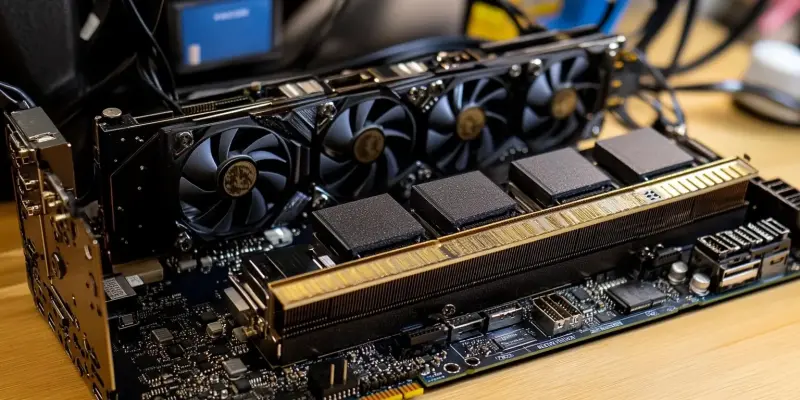Vince Lucido, popularly known as “Kingpin,” has long been a revered name in the world of overclocking and custom GPU design, particularly through his collaborations with EVGA. Despite his celebrated past, Kingpin recently announced that he would not release any models for NVIDIA’s upcoming RTX 50 series due to contractual issues and unspecified underlying problems. His decision has created ripples in the enthusiast-level GPU market, raising questions about the future of this segment.
Kingpin’s Influence and EVGA Collaboration
Kingpin’s influence in the GPU market has been immense, particularly through his work with EVGA. The “EVGA Kingpin” series, specifically designed for enthusiasts and overclockers, set high benchmarks for GPU performance. His expertise in pushing hardware limits made these GPUs highly sought after among enthusiasts. However, the end of his partnership with EVGA, which exited the GPU business, marked a significant shift. The exit indicated a decline in the production and popularity of high-end GPUs aimed at enthusiasts.
Waning Interest in Enthusiast-Level GPUs
An overarching trend in the current tech landscape is the decreasing interest among companies in developing enthusiast-level GPUs. The segment has seen diminished attention, particularly since the release of NVIDIA’s Ampere series. Companies like EVGA, once known for their commitment to overclocking and hardware innovation, have shifted their focus. This shift away from producing high-end GPUs has left a noticeable gap in the market, which Kingpin’s latest decision exacerbates.
Potential Shift Towards New Ventures
Despite the current pause, Kingpin’s enthusiasm for creating cutting-edge graphics cards has not waned. In his video message, he expressed continued passion for GPU design but cited contractual constraints and other unspecified issues preventing immediate releases for the GeForce RTX 50 series. He hinted at ongoing engagements, including testing PNY’s “KP card” based on the Ada Lovelace architecture, signifying potential future contributions to the GPU market. This development suggests that while Kingpin may not be involved with NVIDIA’s upcoming series, his work in the GPU field is far from over.
Future Collaborations and Strategic Shifts
Kingpin’s contemplation of future collaborations could involve partners beyond NVIDIA’s ecosystem. His exploration of potential partnerships with entities like AMD or Intel indicates a possible strategic shift. This pivot could revitalize the high-performance GPU segment, offering enthusiasts new options and innovations. Such collaborations might redefine GPU standards, bringing fresh competition and advancements to the forefront. While the immediate contributions to the RTX 50 series are halted, the potential for diversified ventures remains strong.
Broader Implications for the GPU Market
Vince Lucido has been a renowned figure in the field of overclocking and custom GPU design, especially noteworthy for his collaborations with EVGA. Known for pushing the boundaries of GPU performance, Kingpin has amassed a dedicated following among computer enthusiasts and gamers. However, in a recent announcement that has sent waves through the enthusiast-level GPU community, he revealed that he will not be releasing any models for NVIDIA’s upcoming RTX 50 series. This decision stems from contractual issues and other unspecified underlying problems. The news has left fans and industry watchers speculating about the potential impact on the high-end GPU market. Kingpin’s absence from the RTX 50 series launch raises questions about the future availability of specialized, high-performance GPUs that many enthusiasts rely on. The GPU community remains on edge, eagerly awaiting updates or potential resolutions that could bring Kingpin back into the fold and continue his legacy in overclocking excellence.

